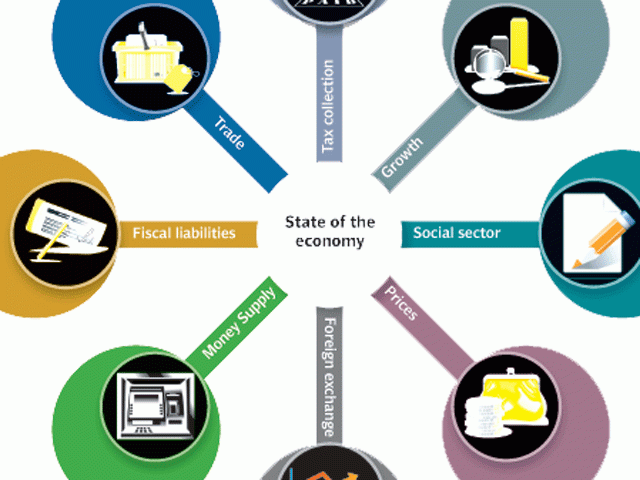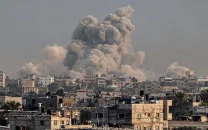Lack of political will the real problem
The primary source of the economic malaise is the government's inability to make hard decisions.

The underlying theme of the State Bank’s second quarterly report for fiscal 2011 was simple: while there are many external factors that can negatively impact the country’s economy, the primary source of the economic malaise is the government’s inability to make hard decisions.
The report for the second quarter was slightly more optimistic than that of the first, when the country had only recently been devastated by the biggest floods in over 70 years.
The agricultural sector’s recovery appears to be under way much better than anyone had dared anticipate. Indeed, the floods may end up helping increase agricultural output for fiscal 2012.
However, the key problems identified last quarter – indeed, last year as well – are depressingly similar to the ones that the central bank talks about in this report. The single biggest problem confronting the economy today is the government’s inability to increase its revenues and restore fiscal balance to its own balance sheet.
The State Bank recommends three measures to remedy the situation, none of which seems politically palatable to the government at the moment. The three policies are: increase revenues through eliminating exemptions and levying the value added tax, reform and sell off loss-making state-owned enterprises, and end all subsidies to consumers.
Finance Minister Abdul Hafez Sheikh has, since the day he took office, given rhetorical support to all of these measures but has retreated even at the slightest hint of opposition when it comes to implementation.
For example, the government has now twice withdrawn an increase in retail prices of oil after encountering strong resistance from its own coalition allies as well as the opposition. The report talks about a “socio-political resistance to paying taxes,” which is essentially a polite way of saying that the people of Pakistan do not want to pay taxes and the government is too weak-willed to force them to do so.
The central bank has a grand total of one paragraph about the Federal Board of Revenue’s (FBR) recent efforts to crack down on tax evasion, which suggests that the SBP does not have much hope of higher revenues from that source.
In simple terms, the inability of the government to get its act together about its finances means that it lacks the capacity to confront any of the external problems that come its way.
For instance, most countries around the world are being affected negatively by rising oil prices, but they have a much worse inflationary impact in Pakistan owing to the fact that the government does not pass on the increase to consumers and ends up making up for the loss in revenues by simply printing money. In other words, the government does not increase oil prices to prevent inflation from rising, but does so in a manner that causes inflation to rise anyway.
In addition, the flood was a devastating event over which the government had no control but it was unable to spend money to help with reconstruction owing to a complete lack of room in the budget, resulting in a further deterioration of the economy’s capacity to grow.
Published in The Express Tribune, April 9th, 2011.


















COMMENTS
Comments are moderated and generally will be posted if they are on-topic and not abusive.
For more information, please see our Comments FAQ